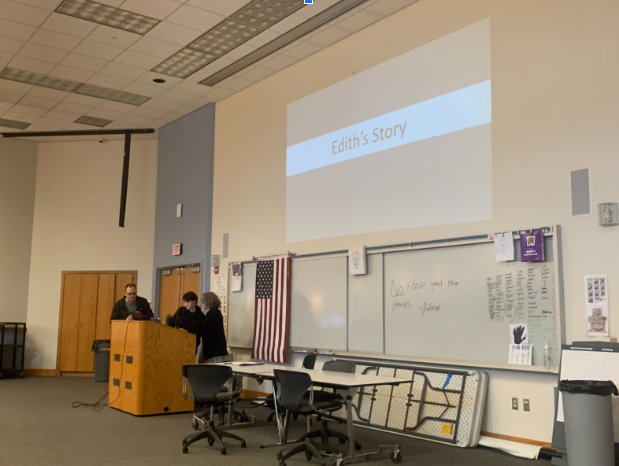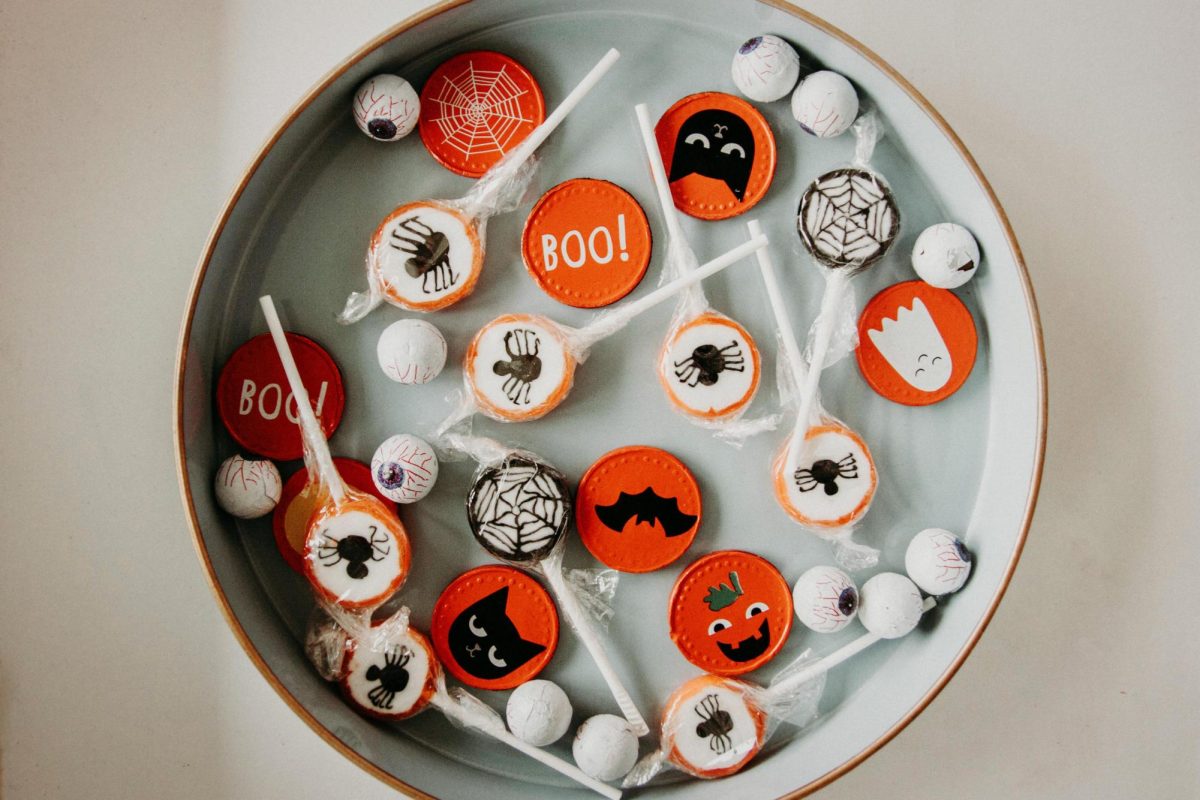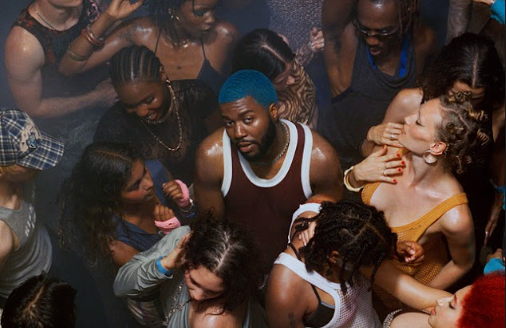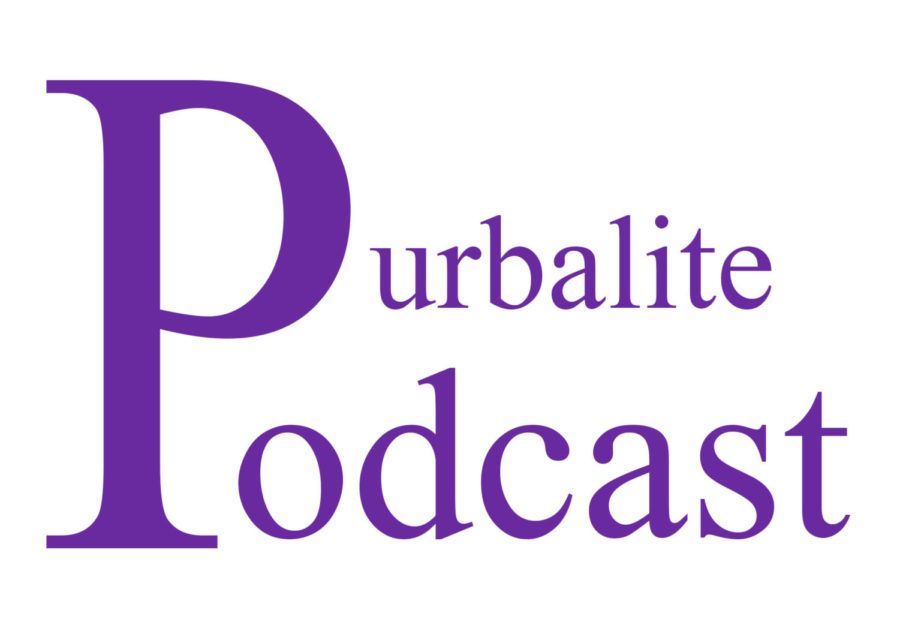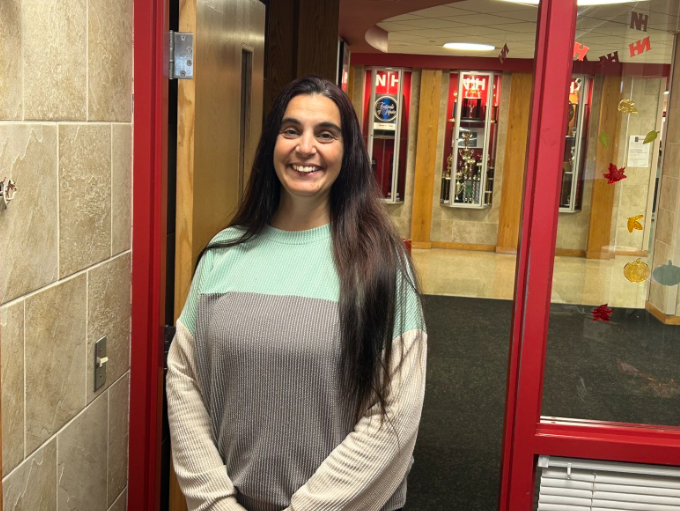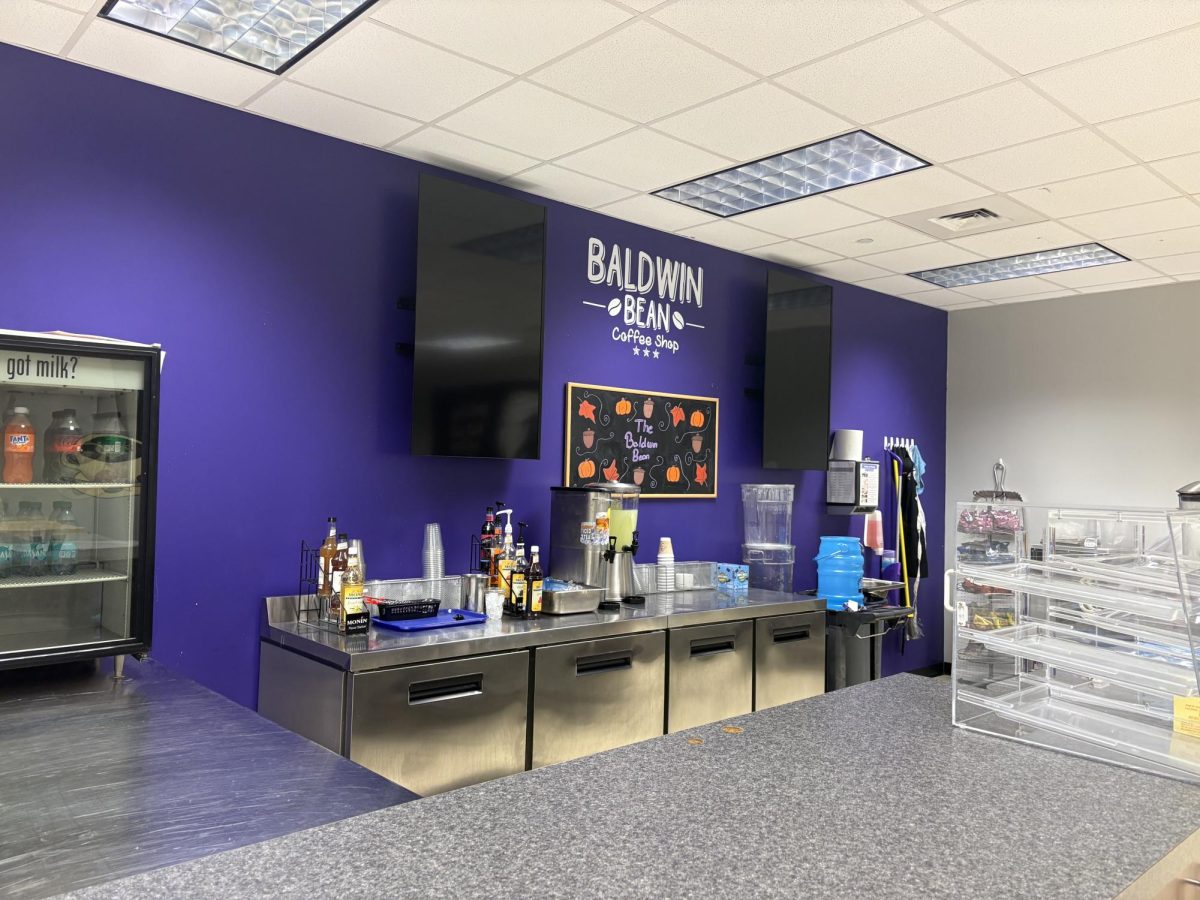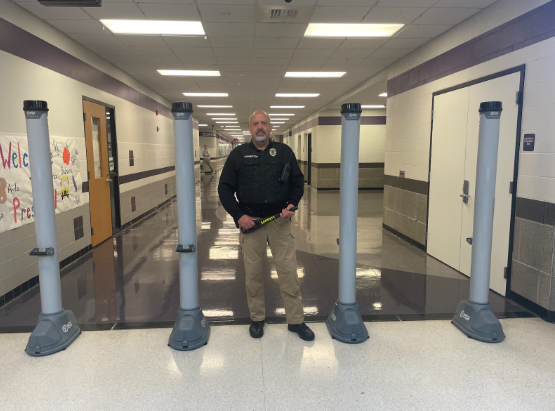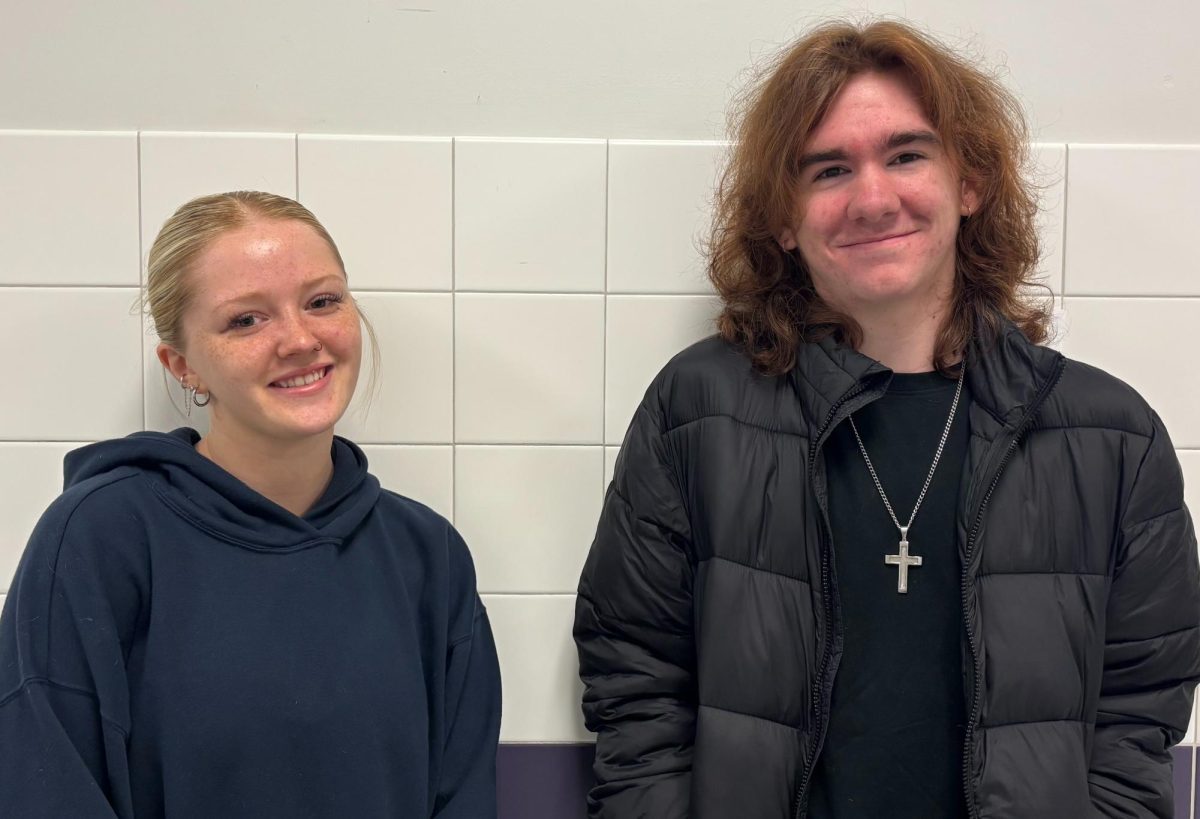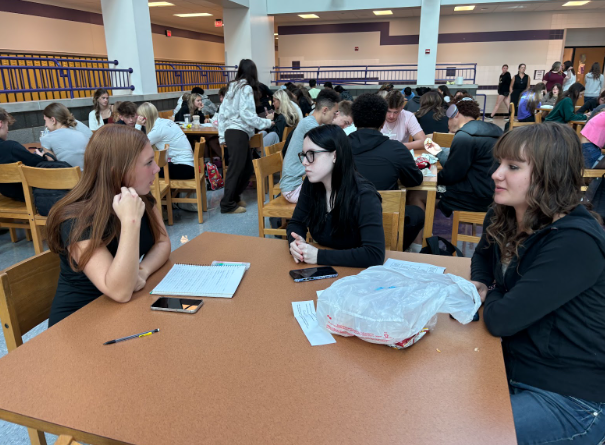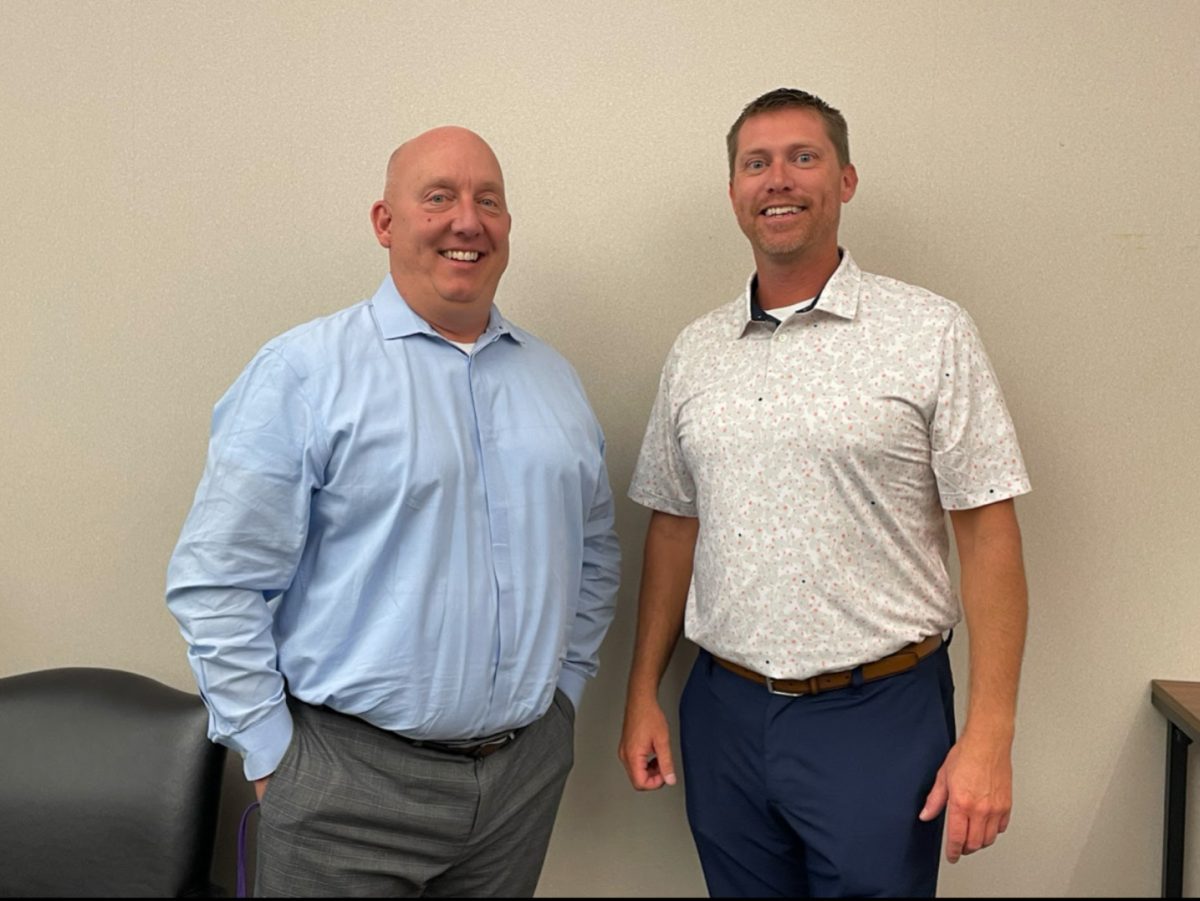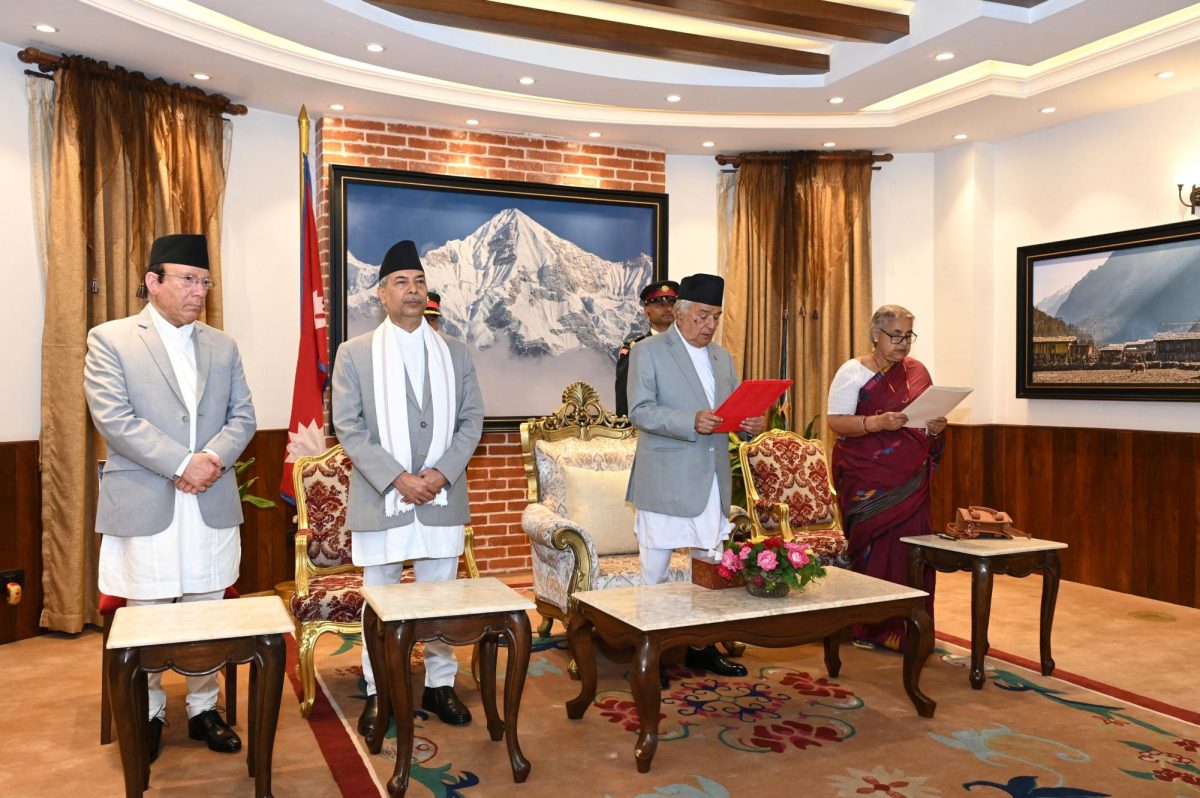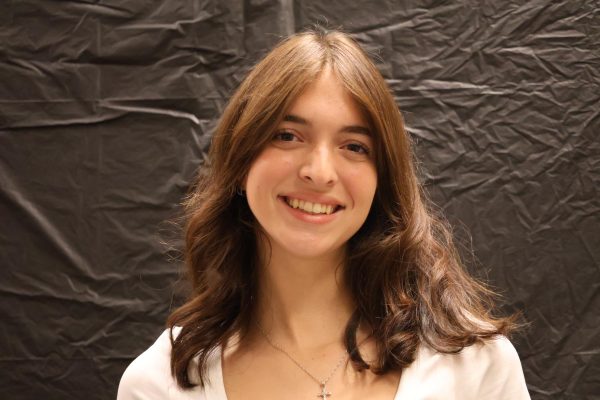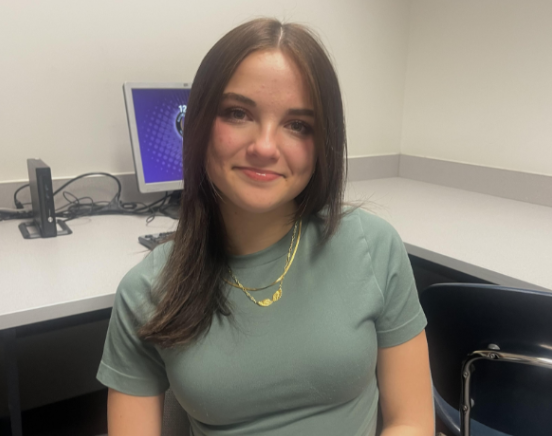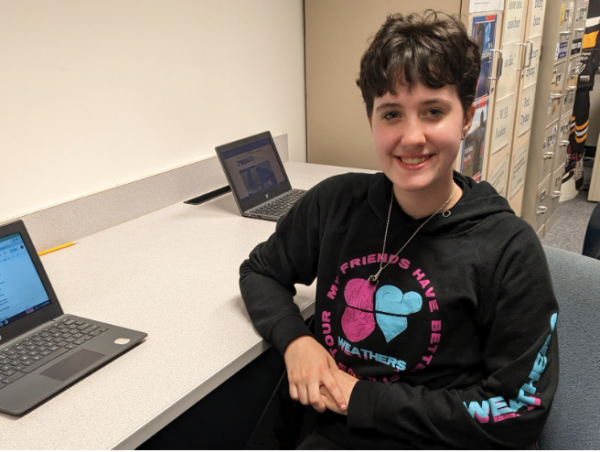Debbie Leuchter Stueber’s parents are Holocaust survivors, which sometimes made life difficult for her in unexpected ways.
“I think my father thought there was a Nazi around every corner,” Stueber said. “I specifically remember not being able to sleep over at a party and they came to get me.”
Leuchter Stueber shared her parents’ stories and her own and also promoted Holocaust awareness in a presentation appropriately named “A Story of Love and Resilience” for Baldwin students earlier this month.
Her mother, Edith Leuchter, was born in Bruchsal, Germany, and was deported to an internment camp in Gurs, France, in 1940. Internment camps were different from concentration camps in the sense that they did not kill Jews there, although treatment was still extremely bad and conditions were horrible, Stueber said.
Later, Edith was moved to an orphanage called Masgelier which specialized in taking care of Jewish children during the war. She remained there for a year and a half, then continued to relocate to four other schools and orphanages. Then, at the age of 18, she immigrated to America. During her time at Masgelier, Edith met Kurt Leuchter, who would eventually become her husband.
Kurt was born in Vienna, Austria, and he was forced to Belgium by the Nazis with his family in 1939. After the Germans invaded Belgium in 1940, Kurt was eventually sent to Camp des Milles, another internment camp in France. Then, in August 1942, at the age of 13, Kurt’s parents signed papers to hand him over to Oeuvre de Secours aux Enfants (OSE), a French-Jewish organization that ran many different orphanages, schools and convents for Jewish children during WWII. From there, OSE sent him to Masgelier.
Later that month, his parents were deported from Camp des Milles to Auschwitz, where they were immediately murdered in the gas chambers.
Kurt spent time at Masgelier and later even in the French Resistance during the war. It was only when he arrived in America at the age of 17 that he reunited with Edith. They married on Aug. 13, 1950.
Kurt and Edith are ages 95 and 96 now. They have been married for 73 years, and they participated in the Baldwin presentation via Zoom.
Today, knowing later that her parents had dealt with PTSD – an unknown disorder at the time – Stueber understands why they were so overprotective and strict as parents.
“If you think about your parents and you think about some of their weaknesses and strengths,” Stueber said, “it’s hard to differentiate if it’s just who they are or if it’s because of their experiences.”
Daniel Shaner, the organizer of the event, said Holocaust awareness is vital.
“It teaches empathy. The world is much bigger than we are, and the world works much better when we care about others.” Shaner said.
More than 70 years after the Holocaust, more and more survivors are passing away. And with that, the younger generations are losing primary sources of one of the most devastating events in history.
“The people who were there – whether they were the perpetrators, the victims, or even the liberators – they’re leaving us,” Shaner said. “You know from your own classes (that) primary sources are the best sources. Now we have people like Debbie, the secondary sources.”
Kurt Leuchter, now 95, advised students to focus on learning and kindness.
“The more you learn, the better off you are,” Leuchter said. As a parting message, Leuchter added, “Be good to each other.”

